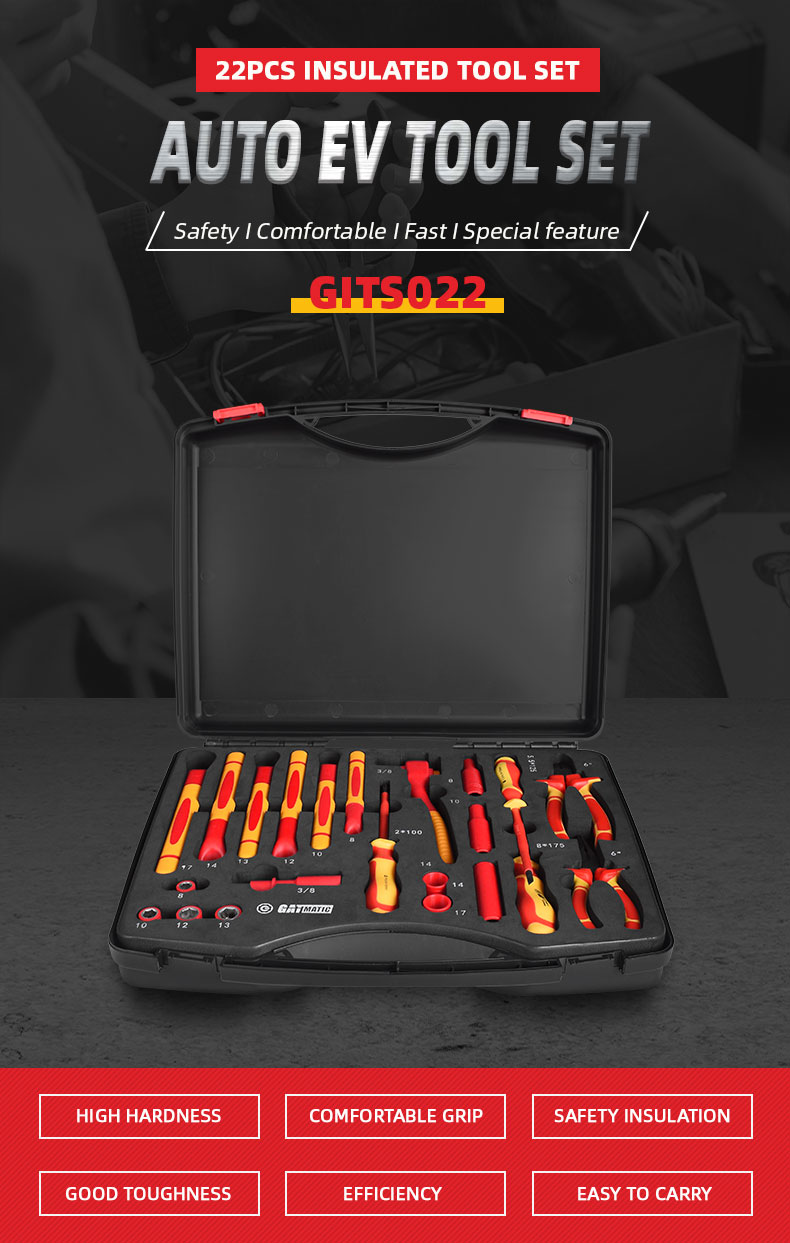Why is VDE certification important for insulated tools?
Insulated tools are essential for professionals working in environments where electrical safety is paramount. These tools, designed to protect users from electrical shocks, are commonly used in industries like electrical engineering, construction, and automotive maintenance. While many tools are labeled as “insulated,” not all meet the strict safety standards necessary to ensure user protection. This is where VDE certification comes into play. VDE certification is a globally recognized mark of quality and safety for electrical equipment, ensuring that tools meet stringent safety requirements. In this essay, we will explore why VDE certification is critical for insulated tools, focusing on its role in ensuring electrical safety, durability, reliability, and global trust.
I. What is VDE Certification?
VDE stands for “Verband der Elektrotechnik,” which translates to the Association for Electrical, Electronic & Information Technologies. Based in Germany, the VDE association establishes standards for electrical products and performs rigorous testing to ensure compliance. Tools that meet these high standards receive the VDE certification mark, indicating they are safe and reliable for use in electrical work. VDE certification aligns with European and international safety standards, making it a trusted indicator of product quality and performance across industries. This certification is particularly significant for insulated tools, as it guarantees that the tools have been tested for electrical insulation properties under real-world conditions.
II. Electrical Safety
The primary purpose of insulated tools is to protect users from the dangers of electrical shocks, particularly in high-voltage environments. VDE certification ensures that these tools provide sufficient insulation to prevent electrical current from passing through to the user. This protection is vital for electricians and technicians who regularly handle live electrical circuits. VDE-certified tools undergo rigorous testing to confirm their insulation meets or exceeds the required standards, providing assurance that they will perform as expected in critical situations. Without VDE certification, users cannot be certain that the tools they are using will offer the necessary protection, potentially putting lives at risk.
III. Durability and Reliability
In addition to ensuring electrical safety, VDE certification also guarantees the durability and reliability of insulated tools. Tools used in professional settings are often subjected to harsh conditions, including physical impact, extreme temperatures, and heavy use. VDE-certified tools are tested for their ability to withstand these stresses while maintaining their insulation properties. For example, these tools are subjected to impact tests to ensure they can endure drops or heavy use without compromising their safety features. The materials used in VDE-certified tools must also exhibit high resistance to aging and wear, ensuring they provide long-term safety and reliability.
IV. Trust and Global Recognition
VDE certification is not only recognized in Germany or Europe but is also trusted globally as a mark of quality and safety. Professionals worldwide, particularly electricians and engineers, rely on VDE-certified tools because they know these tools have passed the most stringent safety and performance tests. This global recognition gives VDE-certified tools a significant advantage in international markets. When professionals see the VDE certification mark, they can trust that the tool meets the highest standards of safety, reliability, and performance. This trust is particularly important in industries where lives and valuable equipment are at stake.
V. Legal and Regulatory Compliance
Many industries, especially those that involve working with electricity, have strict legal and regulatory requirements for the tools that can be used. In many regions, insulated tools must comply with specific safety standards, such as IEC 60900, which applies to tools used for live working. VDE certification helps manufacturers meet these legal requirements by ensuring that their tools conform to relevant safety regulations. This compliance not only protects workers but also shields companies from legal liabilities that could arise from using substandard tools. Having VDE certification on a tool ensures that it meets all necessary regulatory standards, providing peace of mind to both users and employers.
VI. User Confidence and Assurance
One of the key benefits of VDE certification is the confidence it instills in users. When professionals use VDE-certified insulated tools, they can be confident that the tools will perform safely and reliably in demanding situations. This assurance is critical for electricians and technicians who regularly encounter high-risk environments. Knowing that their tools are certified to meet the highest safety standards allows them to focus on their work without worrying about the risk of electrical shock or equipment failure. The certification also reduces the likelihood of workplace accidents, helping to create safer working environments.
Conclusion
In conclusion, VDE certification plays a crucial role in ensuring the safety, reliability, and durability of insulated tools. For professionals working in high-voltage environments, having VDE-certified tools is essential for protecting against electrical shocks and ensuring compliance with legal and regulatory standards. The global recognition of VDE certification also makes these tools trusted in international markets, giving users confidence in their performance. Whether for personal safety, regulatory compliance, or long-term reliability, VDE certification is an indispensable mark of quality that highlights the importance of using certified insulated tools in any professional electrical work.
FAQs
1. What does VDE certification signify for insulated tools?
VDE certification indicates that insulated tools have undergone rigorous testing by the VDE Association to ensure they meet high standards of electrical safety and performance. It signifies that the tools provide reliable insulation to protect users from electrical shocks and comply with relevant safety regulations.
2. How does VDE certification ensure electrical safety?
VDE certification ensures electrical safety by testing tools for their insulation properties under real-world conditions. Certified tools must pass tests for insulation resistance, impact resistance, and temperature tolerance, ensuring they provide adequate protection against electrical shocks in high-voltage environments.
3. What types of tests do VDE-certified tools undergo?
VDE-certified tools undergo several tests, including:
- Insulation Resistance Tests: To ensure the tool’s insulation effectively prevents electrical current from reaching the user.
- Impact Tests: To verify the tool’s ability to withstand physical impacts without compromising its insulation.
- Temperature and Aging Tests: To ensure the tool maintains its safety features over time and under varying temperatures.
4. Why is durability important for VDE-certified insulated tools?
Durability is crucial because insulated tools are often subjected to harsh conditions, such as physical impacts, extreme temperatures, and heavy use. VDE certification ensures that tools are built to endure these stresses while maintaining their insulation properties, ensuring long-term safety and reliability.
5. Is VDE certification recognized worldwide?
Yes, VDE certification is globally recognized as a mark of quality and safety. It is trusted by professionals in various industries around the world, providing assurance that the tools meet high safety standards and are suitable for use in high-voltage environments.
6. How does VDE certification help with legal and regulatory compliance?
Many industries have strict regulations regarding the safety of tools used in electrical work. VDE certification helps manufacturers ensure their tools comply with these regulations, such as IEC 60900 for live working. This compliance protects both users and companies from legal liabilities and enhances workplace safety.
Describe Your Needs In Detail!
We will carefully evaluate your needs and give professional solutions.



